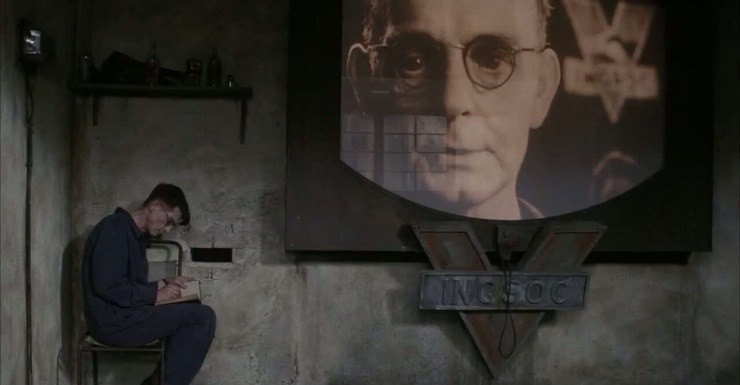One of the things that’s different about human beings is that we alone, as far as we know, tell ourselves stories about how the universe came to be. Other animals may communicate—may sing, may cry, may signal intent—but we alone create narratives about our own existence.
From ancient civilizations carving hieroglyphics on stone walls, to modern scientists filling tomes with the hieroglyphics of mathematics, we’ve always sought to define our place in the universe. The lens through which we view the world has passed through countless iterations, beginning with ancient myths, and later variously transitioning to Plato, Einstein, and Quantum mechanics.
With that in mind, I’ve picked out five books that touch upon or reference different cosmological outlooks.
The first book is American Gods, by Neil Gaiman. In this novel, gods and mythological beings walk the earth in existential crisis. Odin rubs shoulders with leprechauns, while undead revenants test the ties of love. And those aren’t even the strangest parts. This is a great book that really dives deep on the idea that we are in many ways the sum of our beliefs. The things we believe in strongly gain a reality of their own.
The second book is The Da Vinci Code, by Dan Brown. In this novel, the secret scrolls of the Nag Hammadi are referenced and the information they contain becomes vital to the plot. In real life, these lost writings were found in a jar in the desert, and the information contained in them helped to illuminate the Gnostic interpretation of the universe. If you’re unfamiliar with the Nag Hammadi, it’s a fascinating subject. Although I don’t remember it being really addressed in The Da Vinci Code, a central tenet of the gnostic belief system is the idea that humans are living in a kind of double world—a simulacrum of a higher order reality that can’t be directly accessed.
The third book on this list is George Orwell’s 1984. In this novel, there’s a distinct nod toward Plato’s Allegory of the Cave. Plato, much like the Gnostics, believed in the possibility of a hidden layer to reality, and his writings suggested that what we’re seeing in the world around us may actually be illusory. In Plato’s allegory, we are like prisoners watching a flickering light on cave walls. In George Orwell’s beloved dystopia, it is larger society itself that is set inside that cave. Society is a lie we tell each other and ourselves.
The fourth book is Joe Haldeman’s The Forever War, whose plot is partially dependent on some of the more interesting implications of Einstein’s theory of relativity. Here, truly, is a cosmological outlook that changed everything. In the Forever War, space travel produces relativistic effects on the UNEF troops. They find themselves displaced from their own time, and must navigate both a war and a world that has literally passed them by.
The fifth and most recently published book is Superposition, by David Walton. It’s a great book that acts as an exploration of quantum mechanics. Upspin and downspin points of view alternate in this book which is part mystery, part court drama, part physics thriller. It’s short on hand waving, and long on the kind of detailed analysis that suggests it was written with the eye of an engineer. Which, it turns out, it was.
Ted Kosmatka’s work has been reprinted in nine Year’s Best anthologies, translated into a dozen languages, and performed on stage in Indiana and New York. He’s been nominated for both the Nebula Award and Theodore Sturgeon Memorial Award, and is co-winner of the 2010 Asimov’s Readers’ Choice Award. His novel The Games was nominated for a Locus Award for Best First Novel. His latest novel, The Flicker Men, is available now from Henry Holt & Co. Read an excerpt here.










